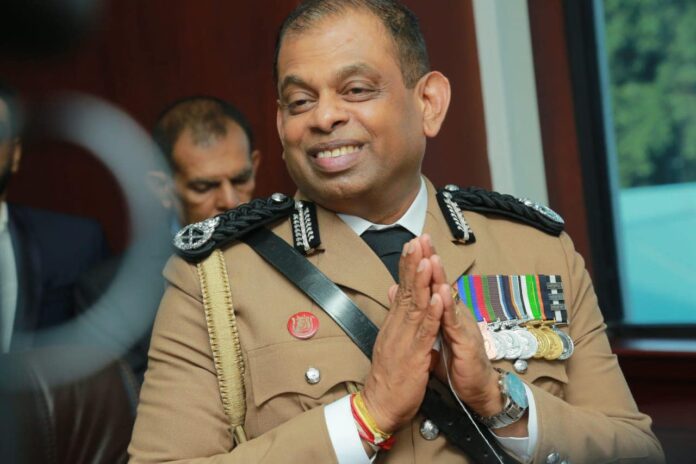By: Ovindi Vishmika
May 02, Colombo (LNW): The suspended Inspector General of Police (IGP) Deshabandu Tennakoon has formally requested state protection following alleged death threats linked to powerful underworld figures, reigniting national debate on the legal entitlements of individuals facing legal proceedings. The development has prompted a broader discussion on whether individuals under suspension, arrest, or bail are entitled to personal protection under Sri Lankan law when facing credible threats to their lives.
Tennakoon, who has been suspended over serious allegations and is currently out on bail, submitted a written request for protection to Acting IGP Priyantha Weerasuriya on May 1. The appeal cites intelligence reports pointing to threats from organized crime syndicates, including fugitive underworld leader “Kanjipani Imran,” believed to be orchestrating criminal activities from overseas.
Authorities have confirmed that a formal threat assessment is currently being conducted. If a credible risk is established, appropriate security measures are expected to be reinstated.
Legal Framework: Protection Regardless of Legal Status
Despite Tennakoon’s suspension and ongoing investigations, legal experts emphasize that Sri Lankan law does not disqualify individuals from state protection solely based on their legal status. According to the Assistance to and Protection of Victims of Crime and Witnesses Act, No. 4 of 2015, individuals who are threatened due to their involvement in legal processes as witnesses, complainants, or even accused are entitled to protective measures.
Senior Attorney-at-Law Dinesh Abeywickrama stated, “The right to life and protection from harm is fundamental. Whether someone is a suspended official, under bail, or even convicted, if there is a verified threat, the state is obligated to act.”
This provision is supported by Article 11 and Article 12 of the Constitution of Sri Lanka, which guarantee equality before the law and protection from cruel, inhuman, or degrading treatment or punishment.
A closely related case involves Matara Deputy Inspector General of Police (DIG) Nishantha Soysa, who also sought protection after allegedly receiving threats subsequent to testifying in the investigation against Tennakoon.
The Matara Magistrate’s Court ordered security for DIG Soysa, acknowledging the legitimacy of the threats and reinforcing the judiciary’s willingness to safeguard individuals regardless of their current role or status.
Investigations and Legal Oversight
The Criminal Investigation Department (CID) has launched an official probe into the threats made against Tennakoon. With judicial approval, statements will be recorded from two suspects currently held at Boossa High Security Prison.
Meanwhile, a Committee of Inquiry (CoI) led by Supreme Court Justice Preethi Padman Surasena continues to examine the allegations against Tennakoon, supported by high-ranking legal and police officials.
The CoI is scheduled to convene again this week in Parliament and has prioritized Tennakoon’s case due to its complexity and public interest.
Government Response and Political Implications
Minister of Public Security Ananda Wijepala confirmed that Tennakoon’s security was withdrawn following his suspension and while he was reportedly evading arrest. However, he added that any formal appeal for protection would be reviewed in line with existing legal protocols.
“Security arrangements are based on current threat levels, not on past positions,” the minister said. “If there is a real threat, we will ensure the necessary measures are taken, regardless of the individual’s legal standing.”
Balancing Justice and Safety
As the investigation unfolds, the case underscores a critical issue in Sri Lanka’s legal and law enforcement landscape: the challenge of balancing judicial accountability with the state’s duty to protect life.
Legal observers stress that if threats are credible, the state’s duty to protect life must override concerns about the individual’s legal or public standing.
Whether Deshabandu Tennakoon’s request results in renewed protection will depend on the findings of the ongoing threat assessment. But the broader legal and ethical implications of this case are already reverberating through the judicial, political, and law enforcement systems.
As the investigation deepens and the CoI proceeds, authorities now face the dual challenge of pursuing justice while ensuring that no person,accused or otherwise is left unprotected in the face of real danger.

